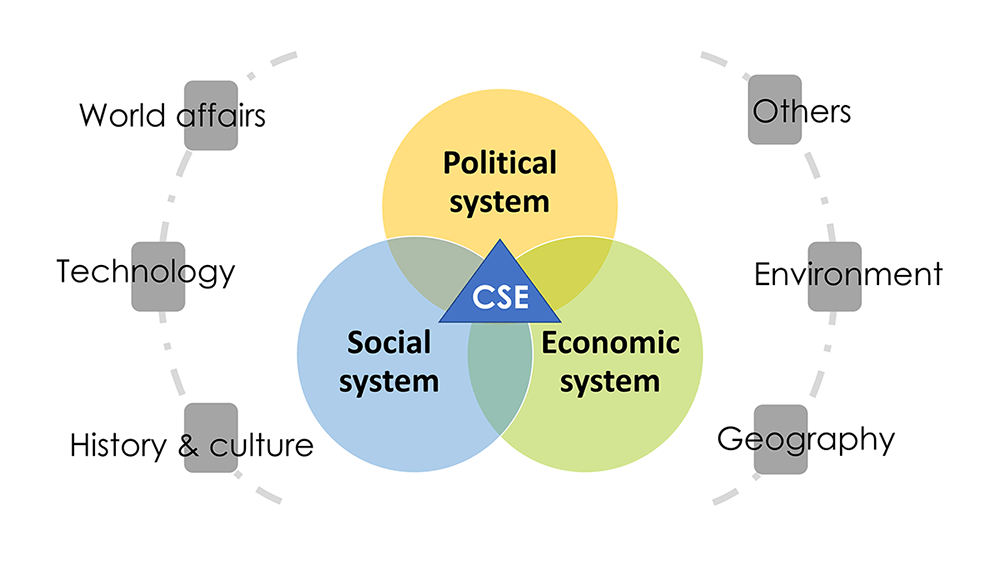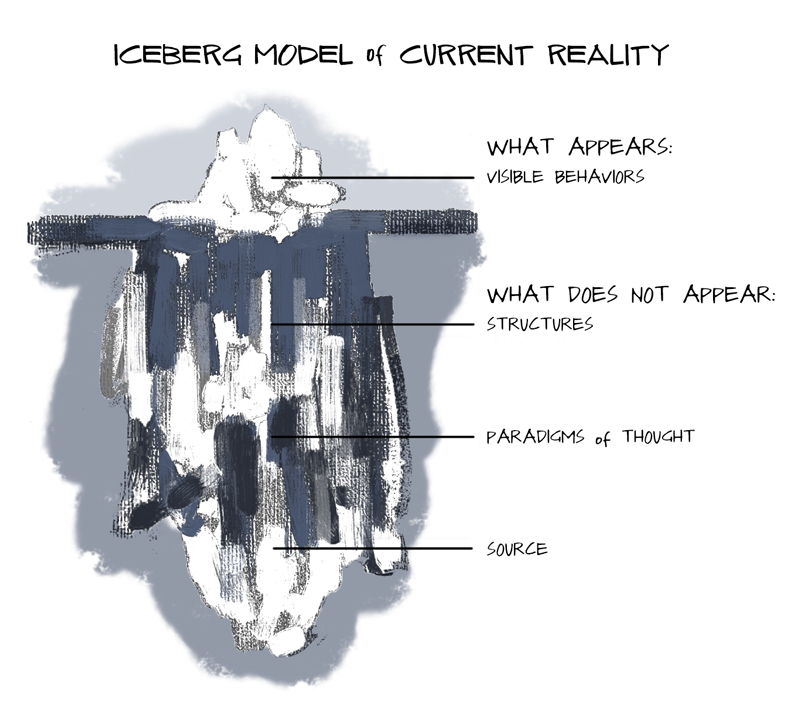You are already login to your ptsx user account on one device. If you want to login to your ptsx user account on this device, your opened ptsx user account on the previous device will sign out automatically.

In today’s digital era, there is less of a need for students to know lots of facts and information; instead, we should require them to use the information to construct their own understanding and engage in purposeful meaning-making.
Today’s civil servants address problems of unprecedented complexities in societies and work in the fast-changing and highly dynamic environment of the 21st century; their decisions affect and shape the political, economic, and social well-being of the country (i.e. public value). The quality of their decisions and actions is determined by their depth of understanding of real-world experiences (Right Knowledge) rather than information, facts, theories, concepts, fluency of subject matters, and others’ perspectives about real-world issues/problems. Hence, Right Knowledge is considered the most important quality for civil servants.
Right Knowledge is the knowledge of relevant subject areas based on the depth of understanding of real-world experiences, and evidence & logic. The requirement for each relevant subject area is different depending upon its relevance for a career in higher civil services such as -

The political system, economic system, and social system of a country are mainly responsible for its development, prosperity, and peace rather than external factors; therefore, the depth of understanding of these three systems is crucial for civil servants to get the desired outcomes of their actions (to create public value). In this context, the eminent economist of oxford university “Sir Paul Collier” proposed that the passage from poverty to prosperity is predominantly a domestic struggle and it plays out politically, socially, and in attempts to harness economic opportunities.
Therefore, the Indian political system, Indian economic system, and Indian social system are considered the core subject areas for the civil services examination and the depth of understanding of these three subject areas is crucial for getting the desired success (high rank in less time) in the exam. Whereas, other subject areas such as Indian history, geography, environment, technology, security concerns, and world affairs are peripheral subject areas. In these, basic knowledge and awareness are sufficient.
Generally, all serious candidates are more or less equally placed in awareness and knowledge of peripheral subject areas but they greatly differ in their understanding of core subject areas (Indian political system, Indian economic system, and Indian social system). The difference in their level of understanding of these three subject areas creates a qualitative difference in their responses; therefore, the difference in the marks obtained by them in the exam.
Depth of understanding of real-world experiences
The depth of understanding of real-world experiences means a deeper understanding of events, issues, crises, and problems of real life that we experience daily such as inflation, unemployment, poverty, road accidents, optimal and sub-optimal results of government policies, corruption, crimes, religious intolerance, casteism, violation of common man fundamental rights, global warming, pollution, wars, cyber-crimes, behaviors and functions of various organizations, group of people, and countries, etc. However, we seldom try to understand why these issues or events are happening the way it is.
The depth of understanding of real-world experiences is crucial for getting excellence in real-life whereas understanding merely concepts and theories is good for academic excellence. As civil servants work in real life and they lead and improve major government functions, their depth of understanding of real-world experiences is crucial for them to perform effectively and efficiently. As a result, the civil services examination tests candidates’ depth of understanding of real-world experiences (Right Knowledge) but not information, facts, theories, concepts, fluency of subject matters, etc.
A deeper understanding of real-world experiences leads to broad horizons and a profound mind whereas a superficial understanding of real-world experiences causes narrow horizons and a shallow mind. Our horizons and quality of mind determine our worldview and are responsible for our actions, responses, and behaviours, and thus our performance.
When our worldview is based on broad horizons and a profound mind, it is close to reality and the results of our actions will be intended and outstanding while the worldview based on narrow horizons and a shallow mind will be superficial and far from reality and it will bring unintended, sub-optimal, and less productive results of our actions.
We can easily understand the depth of understanding of real-world experiences with the iceberg model of current reality. An iceberg has very little part or portion above the water and more part beneath the sea. Similarly, the events, issues, crises, and problems we see today have symptoms at the top and root issues below the line that is not visible to us.

The issues, events, crises, and problems that define our world today arise from underlying structures, paradigms of thought, and source. Generally, we just react to the symptoms that we are facing but ignore their deeper dimensions (root causes) due to our narrow horizons and limited mind. It is kind of the 90% of the system that is below the line. And, when we look only at the symptoms, we have clusters of current challenges and problems.
If we want to understand how various issues, events, crises, and problems impact people and how our society responds to them, we need to closely observe, rely on logic and evidence (high-quality knowledge), and use critical thinking to understand the root causes of them (i.e. their underlying structures, paradigms of thought, and source). This will deepen our understanding of real-world experiences and will broaden our horizons and develop a profound mind. As a result, our worldview will be close to reality.
However, if we engage in shallow thinking and the deeper dimensions (root causes) of the issues, events, crises, and problems are ignored, it will keep us locked into re-enacting the same old patterns of thinking time and again. And, we will develop narrow horizons and a limited mind. Consequently, our worldview will be superficial and far from reality.
Depth of understanding of real-world experiences can be best understood with an example of Article 32 –
Part III of the Indian constitution provides Fundamental Rights to citizens as well as non-citizens and under Article 32 there is a measure of judicial protection and sanctity in the matter of enforcement of Fundamental Rights.
The depth of understanding of real-world experiences related to Article 32 means that our understanding of Article 32 is not limited to its provision and procedure but how it actually functions in real life. Article 32 provides constitutional guarantee and judicial protection in the matter of Fundamental Rights to all people. However, if we closely observe and examine the situation of Article 32 in real life, we can easily understand that -
If, this is the situation of Article 32 today, just imagine what would it be when it was made an important and integral part of the Indian constitution (at the time of constitution making). The constitution is a living document; therefore, just writing down the provision and the procedure of Article 32 in the constitution book does not fulfill its purpose and true spirit but when people are actually able to enjoy it in their lives.
The constituent assembly was aware that the constitutional guarantee of Fundamental Rights, its judicial protection, and enforcement are not a sufficient condition but the whole system should be committed to creating an environment in which every individual can enjoy his Fundamental Rights to ensure his holistic development. Therefore, they shaped the basic spirit of the Indian constitution as -
This is the broad perspective and true spirit of Article 32. And, it is the depth of understanding of real-world experiences related to it.
Right Knowledge - how it is tested in the civil services examination?
The civil services examination (CSE) tests candidates’ Right Knowledge (depth of understanding of real-world experiences), Higher-order skills (core intellectual competencies), and Right Attitudes (spirit and in-depth interest in public service) through their responses. The preliminary stage of this exam carries out the primary assessment of candidates’ Right Knowledge, Higher-order skills, and Right Attitudes through the selected response method, while the main (written and interview) examination is an in-depth assessment of the same through the constructed response method.
The responses (answers) of candidates reflect their level of understanding of real-world experiences, the development of Higher-order skills, and their spirit and interest in public service. However, the quality of candidates’ responses (answers) is greatly determined by their depth of understanding of real-world experiences (Right Knowledge). The difference in the quality of responses (answers) of candidates determines the qualitative difference among them; therefore, the difference in the marks obtained in the exam.
Therefore, the candidates who face difficulty scoring high in this exam, generally have fluency of topics, facts, information, theories, and concepts but lack the depth of understanding of real-world experiences (Right Knowledge). Consequently, their responses (answers) are qualitatively poor in the exam and they end up getting low marks despite answering all the questions in their best capacity.
The situation creates anxiety in candidates’ minds and forces them to expand the ambit of their preparation (by including many irrelevant and substandard sources of knowledge) and to adopt dysfunctional practices (such as rereading books, notes, and other sources of knowledge; massed practice; and blocked practice, etc.) in the hope of better marks. This leads to further deterioration in the quality of their preparation and blurs their clarity of the examination which results in a vicious circle of their preparation.
Therefore, to achieve their desired success in the civil services examination (i.e. to get success with a high rank in less time), candidates should focus to deepen their understanding of real-world experiences (Right Knowledge) by adopting the best practices of learning (such as active learning and reflective thinking, interaction with the real world, learning by doing and deliberate practices, etc.). The best practices are based on the science of learning; therefore, they are highly effective and efficient to develop candidates’ depth of understanding of real-world experiences.
The ptsx perspective